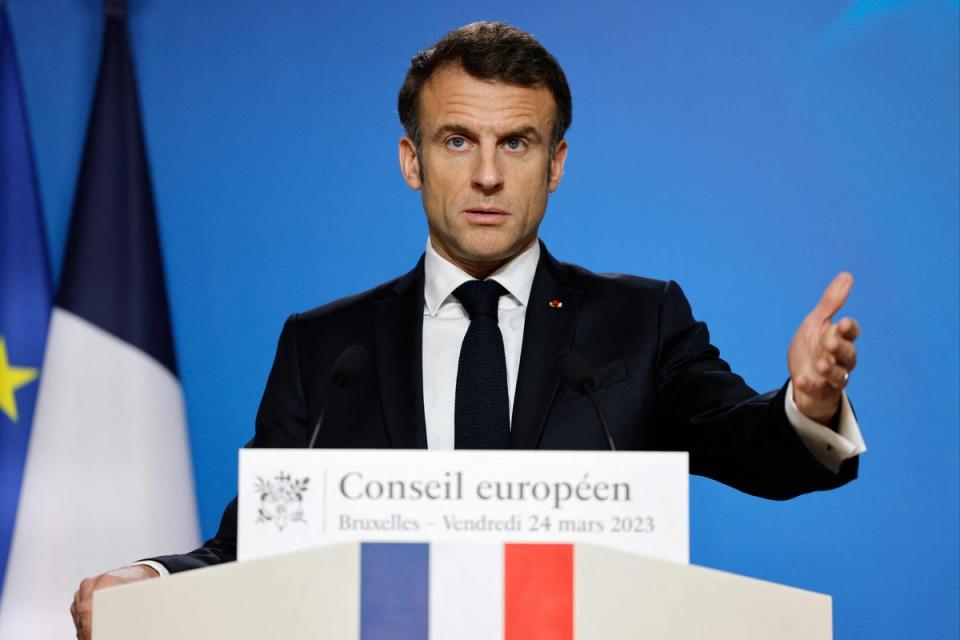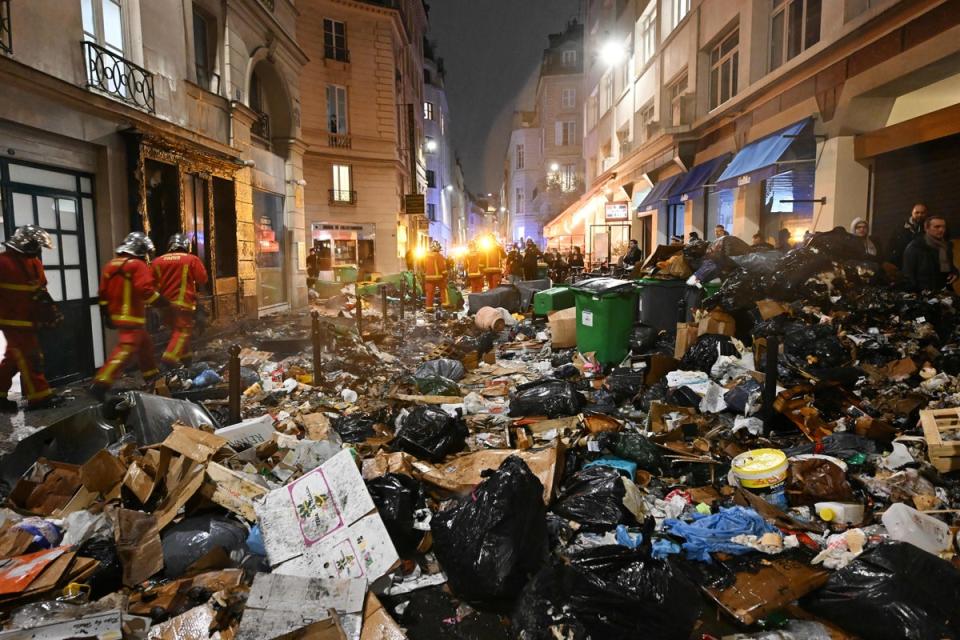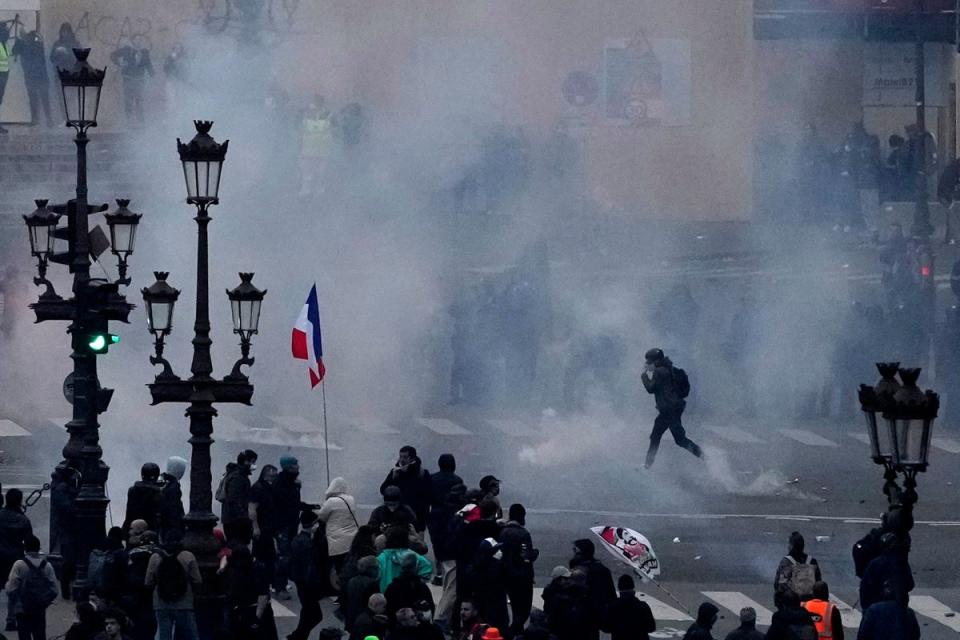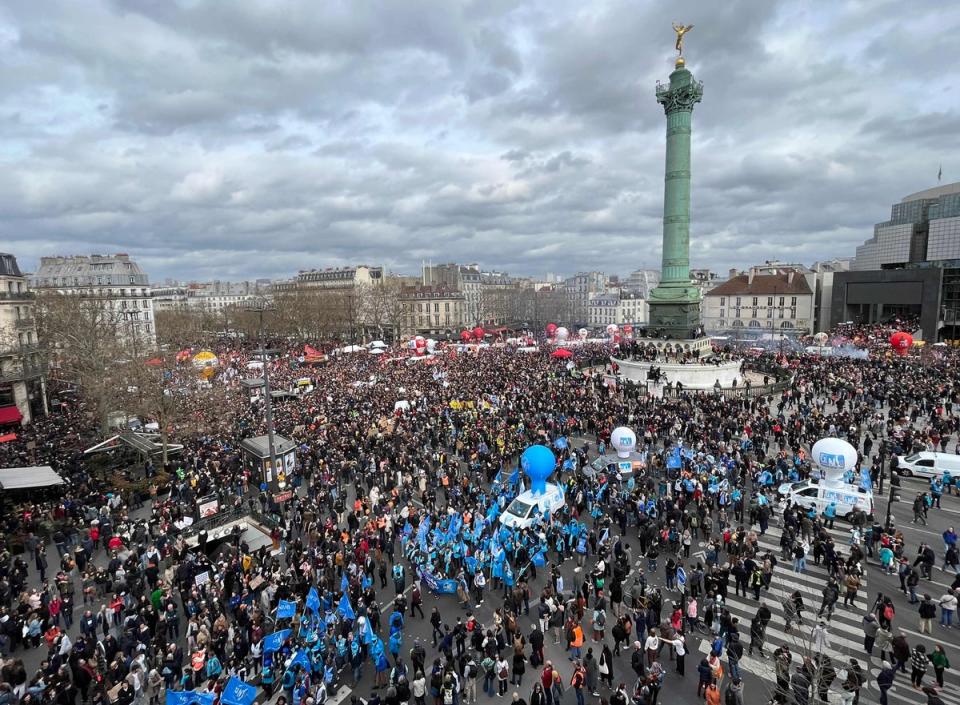Macron v the masses — will the president survive as Paris burns?

At first, it was the sight. Now it is both the sight and the smell that depress and anger Parisians. As they emerge every morning from their home, an unpleasant and pungent new reality stares them in the face. In half the French capital (the other half benefiting from private rubbish collecting), mountains of bin bags are now reaching the first floor of most buildings and blocking narrow pavements, forcing pedestrians to walk in the middle of the street among cars, bicycles, e-scooters and buses.

Many inhabitants have resorted to working from home to escape it all. “I’m sheltered at home like during lockdown,” a friend tells me on the phone. “I have my shopping delivered and I do my gym via zoom. I can’t stand the idea of Paris drowning in filth and swarming with rats.” This coming Monday, the municipal binmen will begin their fourth week of strike, and many Parisians are on the verge of a nervous breakdown. This strike takes place in other French cities too, but Paris being Paris, pictures of the 10,000 tons of detritus building up on pavements have now gone viral and been shared on social media millions of times. Tourists on Emily in Paris tours, highly visible with their red or electric blue beret, take selfies in front of heaps of rubbish. They may find it picturesque, we don’t.

To add to our sorrow, the Paris mayor Anne Hidalgo has pledged to do nothing to solve the issue and blames it all on President Macron and his hotly debated pension reform. Hidalgo even actively supports the strike with banners hanging from the city hall, making a political point while shirking her mayoral duties. “I’m against the pension reform”, says one of my neighbours “but the mayor’s duty is to attend to the city and keep it salubrious.”
Paris municipal binmen, who work 35 hours a week, are on strike because they refuse to retire at the age of 59 instead of 57 by 2030. And if you thought President Macron’s pension reform meant everybody would be asked to work till 64 instead of 62 by 2030, you are putting your finger on the heart of the problem. This reform has been so badly explained that most people focus on the figure 64, forgetting that the new retirement age widely varies depending on the type of activity and when one started working in life. Macron’s pension reform asks of the French that they work two years longer, for a maximum of 43 years. If you started work at 17, you will retire at 60. And there are many exceptions. If your line of work is physically strenuous, you will retire earlier. During the 175 hours of parliamentary debate over the reform, the French government led by Elizabeth Borne, compromised, and conceded on many contentious points, this way hoping to reach a large consensus and appease tensions. Later, the Senate, the upper chamber, which voted for the bill last week, amended the bill further.

If President Macron chose on March 16, ten minutes before the vote was to take place, to trigger article 49.3 of the Constitution giving him the right to bypass the final vote at the National Assembly, it is because the numbers were not enough. His Prime Minister Elisabeth Borne was short of two votes. The future looked grim: either the reform would end up in the bin of history, or the President risked looking authoritarian by forcing the legislation through. For Emmanuel Macron, however, this reform is such a financial and demographic necessity for the country, that he risked the wrath of the opposition and a large part of public opinion. As soon as his decision to bypass lawmakers was known, Far Left, Far Right, and trade unions, immediately accused him of denying democracy. Spontaneous protests broke out on Place de la Concorde which stands across the National Assembly.
Three days later, as is the traditional process of article 49.3, the government had to withstand a vote of no-confidence. Adopted, the government falls and the law never to be debated again. Rejected, the law passes, and the government remains. The result however unleashed even more tension in the Chamber. Fists were raised in the air, insults exchanged. Rejected by only 9 votes, the vote of no-confidence might have failed to bury both the government and the reform; it was clear however that it was a political defeat for President Macron. And more importantly perhaps for his Prime Minister Elizabeth Borne who completely failed to explain the reform, convince the public and build a parliamentary consensus around it. She may still be here this week but she will likely be gone before the Summer.

When President Macron addressed the nation on Wednesday lunchtime, he curiously and clearly too late, made a clear case for the reform. State pensions have been building up deficits for decades, he said, and are now weighing too heavily on the country’s economy, draining €10bn each year. Besides, with a growing number of pensioners (17 million today and 20 million by the 2030s), France cannot afford to retire years before its neighbours who also suffer from the same demographic pressure. With a public debt reaching 114% of its national annual income, not reforming would be financially unsound, Macron argues.

In France though, such reality is difficult to hear. State pensions on which most people rely later in life is considered as a due, not a lucky privilege from the most redistributive welfare state in Europe. As a result, trade unions have vowed to continue strike actions and protests in the streets. Representing mostly state workers, they have the power to disrupt transport, education, refineries, garbage collecting, in other words all that is essential for a country to keep running.
As often in France, the rest and history will be decided in the streets. If students and lycéens continue to join, as they have started doing these last few days, the improvised night protests in Paris and elsewhere in France, playing cat and mouse with the riot police, and setting fire to the bins lining the boulevards, it will be increasingly difficult for the President to ignore the clamour. He is known for taking risks, but if he fails to pull this one off, the remaining four years of his presidency promise to be bumpy.

 Yahoo Sport
Yahoo Sport 





































